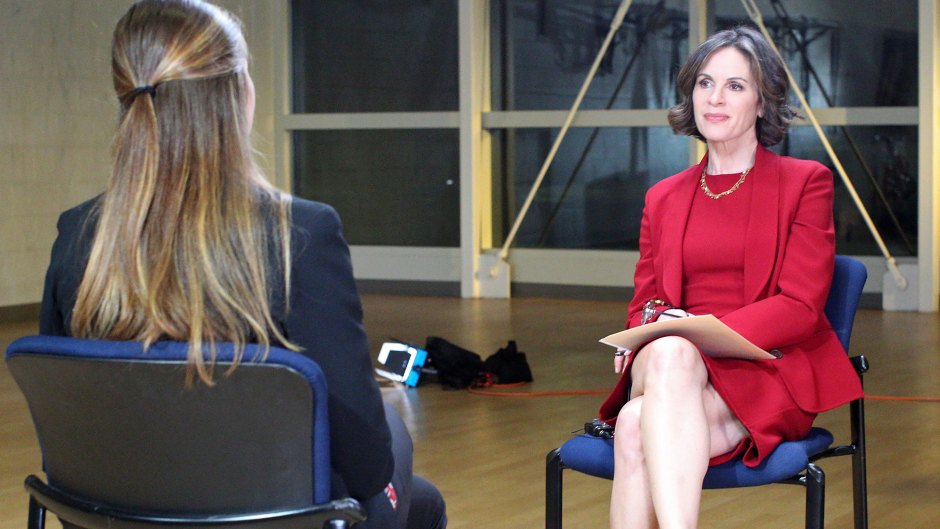
Getty Images
Reporter Elizabeth Vargas Reveals Why She is Drawn to the World of True Crime and A&E’s ‘The Untold Story’
Over the past 14 years or so, investigative reporter Elizabeth Vargas has gone from being a news correspondent and anchor for Good Morning America and 20/20, among others, to being one of the most recognizable names and faces when it comes to covering the world of true crime. The latest example of that is A&E’s The Untold Story, a six-episode series that delves a little deeper and accesses stories you might not be that familiar with. The final installment, “Secret Life of a Gang Girl,” airs on May 23.
“They’re not topics that nobody has heard of before,” explains Elizabeth exclusively to In Touch, “but they’re the details or things that nobody’s heard before, like the two hours that we did on the whole sex business and how the Internet has completely, radically changed it, introducing people in a very intimate way to the folks who make a living in the sex industry. Or the two-hour special we did on child brides, which is definitely something that most Americans are unaware of. Talk about an untold story: A quarter of a million children were married in the United States of America between 2000 and 2010, and viewers were absolutely shocked that this was happening. When I told people I was working on a documentary on child brides, they were, like, ‘Oh, did you go to Pakistan or Afghanistan?’ I was, like, ‘No, we went to Missouri and Florida.’
“We also cover fugue amnesia,” she continues. “A lot of folks have heard of the ‘Jason Bourne Syndrome’ because of the huge popularity of the Jason Bourne books and the movies, but I don’t think people are aware that this is a condition that actually afflicts people. And that’s certainly true in the case of Hannah Upp, a missing teacher that many people have heard of because her disappearance was so widely covered. And then her reappearance, astonishing as it was, was so widely covered as well. And now that she’s gone missing for a third time. It’s a fascinating story involving a little-known and controversial diagnosis.”
To continue reading our interview with Elizabeth Vargas, please scroll down.
Have a tip? Send it to us! Email In Touch at contact@intouchweekly.com.

Kris Connor/Getty Images for Samaritan Daytop Village

Slaven Vlasic/Getty Images

ABC/ DONNA SVENNEVIK) ELIZABETH VARGAS

Phoebe Natanson/ABC via Getty Images

Sven Frenzel/ABC via Getty Images

Mark Sagliocco/Getty Images for Hamptons Magazine








































